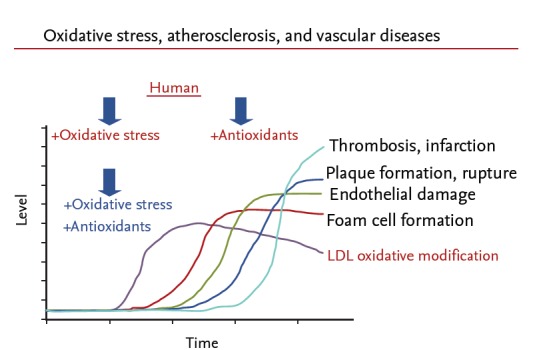Niki Etsuo
The Korean journal of internal medicine, 2015
Abstract
Oxidative stress and lipid peroxidation have been implicated in the pathogenesis of various diseases, including atherosclerosis and fatty liver diseases, and consequently the role of antioxidants in the prevention and treatment of such diseases has received much attention. In particular, the effects of vitamin E, the most important lipophilic radical-scavenging antioxidant, have been investigated extensively. Many in vitro, animal, and epidemiological studies have reported positive results, but large-scale randomized controlled intervention studies and meta-analyses have produced inconsistent and often disappointing results. In the present review article, the role and action of vitamin E are discussed, with consideration of the factors that determine the outcome of vitamin E treatment. Vitamin E should benefit subjects experiencing oxidative stress due to free radicals when administered at the correct time and for an appropriate duration.
Keywords
Antioxidants; Free radicals; Lipid peroxidation; Oxidative stress; Vitamin E.
Conflict of interest statement
No potential conflict of interest relevant to this article was reported.Figures
 vitamin E supplementation in human trials and animal studies" width="541" height="350" class="size-full wp-image-3816" />
vitamin E supplementation in human trials and animal studies" width="541" height="350" class="size-full wp-image-3816" />
Timing of vitamin E supplementation in human trials and animal studies. Atherosclerosis is a chronic disease that proceeds over many years. The oxidative modification of low density lipoprotein (LDL), against which vitamin E is effective, is assumed to be important at the initial stage. In many human studies, vitamin E is given to those over 50 years old. On the other hand, in most animal studies, antioxidants are given simultaneously with the onset of oxidative stress, which may explain the more positive results compared to those of human trials. Adapted from Niki.
| PMID: | 26354050 |
|---|---|
| DOI: | PMC4578028 |
| PMCID (Free PMC Article): | 10.3904/kjim.2015.30.5.571 |
| Category: | General properties of Vitamin E |
Articles similar to "Evidence for Beneficial Effects of Vitamin E."
- The properties of Vitamin E: Low vitamin intake is associated with risk of frailty in older adults. ( The association between vitamin intake and frailty has hardly been studied... A lower intake of vitamins B6, C, E and folates was associated with a higher risk of frailty. Not meeting RDAs for vitamins was also strongly associated.)
Previous article
Perspective: Should Vitamin E Recommendations for Older Adults Be Increased?.
Next article
Total Polyphenol Content and Antioxidant Capacity of Rosehips of Some Rosa Species.

























































